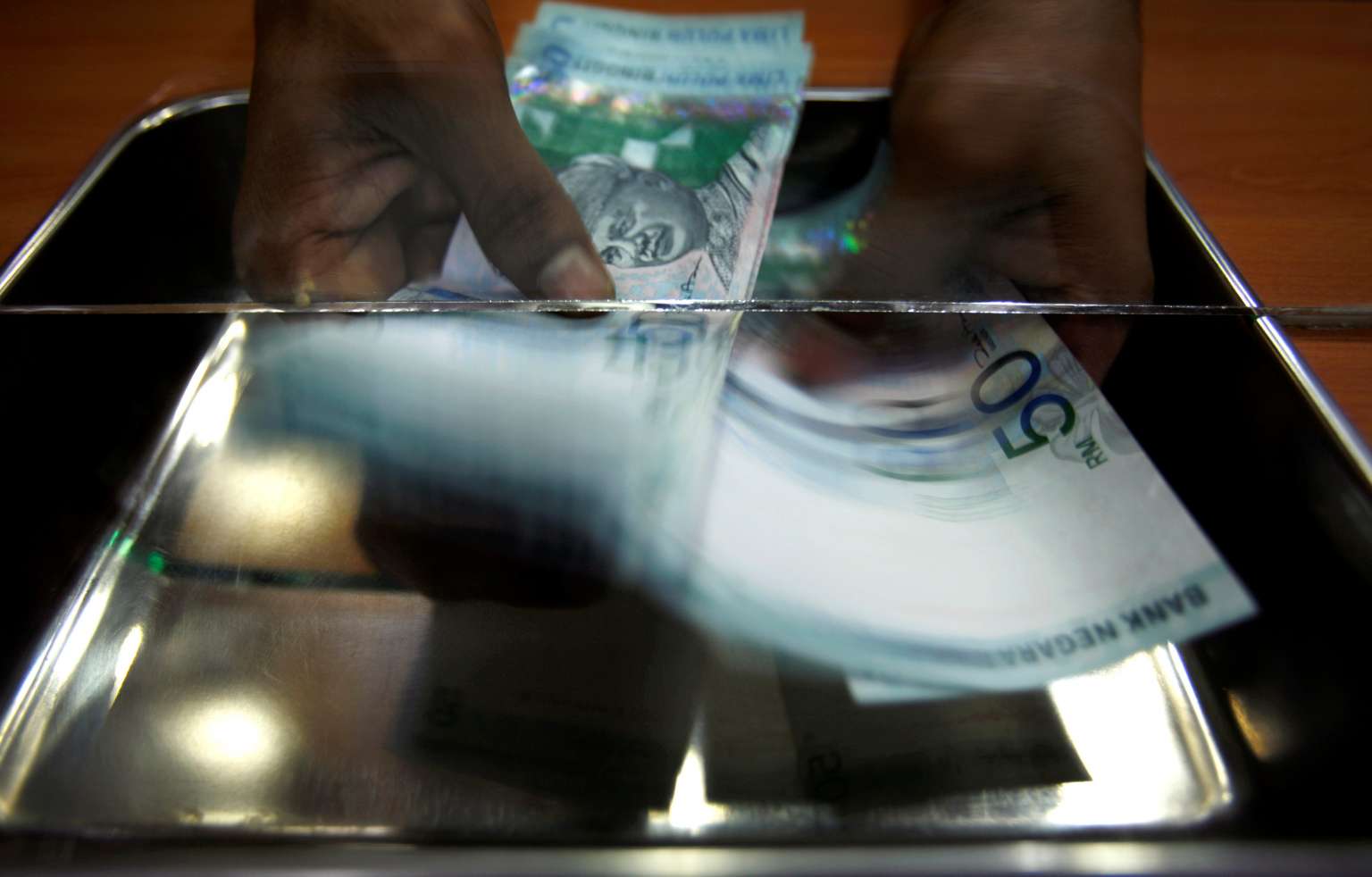Malaysia's ringgit, Asian stocks and oil rally after Opec deal to cut crude oil output
Sign up now: Get ST's newsletters delivered to your inbox

Malaysia's ringgit rose with Asian stocks and oil climbed to a three-week high after Opec agreed to a preliminary deal that will cut crude production for the first time in eight years.
PHOTO: REUTERS
Follow topic:
WELLINGTON (Bloomberg) - Asian stocks rose with Malaysia's ringgit and oil climbed to a three-week high after OPEC agreed to a preliminary deal that will cut crude production for the first time in eight years.
Energy shares led gains on the MSCI Asia Pacific Index as benchmarks advanced across regional markets open for trading. The ringgit strengthened by the most in seven weeks as prospects brightened for Malaysia, Asia's only major net oil exporter, and the yen weakened for a third day. U.S. crude rallied above US$47 a barrel after a 5.3 per cent jump on Wednesday that spurred gains in American energy stocks and commodity-linked currencies. Australian government debt tracked declines in Treasuries amid concern higher energy prices will stoke inflation.
Markets were taken aback by initial reports of the oil- output deal, with Saudi Arabia and Iran wrong-footing traders who had expected a continuation of the pump-at-will policy the Organisation of Petroleum Exporting Countries adopted in 2014.
Opec agreed to trim production to a range of 32.5 million to 33 million barrels per day following an informal meeting in Algiers. Many of the details are still to be worked out and the group won't decide on targets for each member country until its next gathering at the end of November. Concern over a global glut has weighed on crude prices for at least the past two years.
"The energy sector is going to be a key contributor to the rally we see after the OPEC decision," said Tony Farnham, a strategist at Patersons Securities Ltd. in Sydney. "All we've seen at this stage is the intention to do something, I'd like to see it more concrete and then still they have to abide by it. But, it is the first step." For more the proposed deal, see our live blog from Algiers here.
Taiwan has a monetary policy review Thursday, with economists predicting interest rates will be left on hold, as markets there resume trading following a hurricane. Japan reported a bigger-than-expected decline in retail sales ahead of Australian data on job vacancies. Vietnam releases a slew of data, including trade, retail sales and a reading on third- quarter gross domestic product.
The MSCI Asia Pacific Index gained 0.5 percent as of 9:18 a.m. Tokyo time, extending its quarterly advance to about 10 percent. A gauge of energy shares surged 2 percent as Santos Ltd. and Inpex Corp. jumped more than 6 percent.
Futures on the S&P 500 Index were little changed following a 0.5 percent advance in the underlying gauge. As well as the OPEC deal, investors also mulled comments from Federal Reserve officials Wednesday for clues as to the timing of U.S. interest- rate increases. Chair Janet Yellen told lawmakers that the majority of the central bank's policy-setting group sees a rate increase as likely this year, while Chicago Fed President Charles Evans said an extended period of low rates will leave policy makers with less room to navigate future shocks.
The ringgit strengthened as much as 0.8 percent versus the dollar, leading gains among the currencies of oil-exporting nations. Canada's dollar rose 0.2 per cent following a 0.9 percent advance on Wednesday and the Norwegian krone built on the last session's 1 percent jump.
The Bloomberg Dollar Spot Index, a gauge of the greenback versus 10 major peers, slipped for a fourth day, its longest losing streak since July. The yen weakened 0.3 percent.
West Texas Intermediate crude for November delivery gained 0.7 per cent to US$47.38 a barrel, after jumping on Wednesday by the most since April. The lower end of Opec's production target equates to a nearly 750,000 barrels-a-day drop from what the group said it pumped in August. The deal will likely reverberate beyond the bloc, burnishing prospects for the energy industry and boosting the economies of oil-rich countries such as Russia and Saudi Arabia.
"The cut is clearly bullish," said Mike Wittner, head of oil-market research at Societe Generale SA in New York. "The number of actual barrels that will be taken off the market is unclear. What's much more important is that the Saudis appear to be returning to a period of market management."

